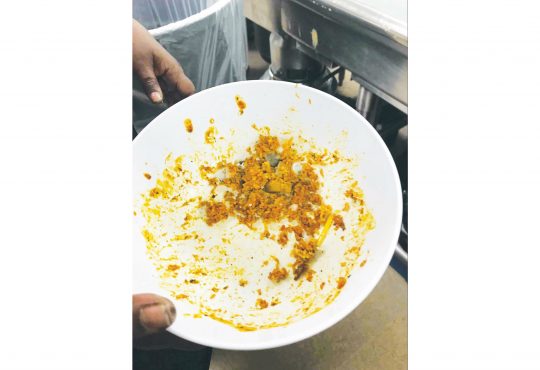You might notice that you see about a hundred stickers around campus that say “Loggers Live Green.”
These stickers are on everything including water bottles, binders and walls. But how much truth is there to what these stickers say?
Puget Sound talks a lot about sustainability, and to some degree, they follow up on those initiatives with actions that prove their commitment to sustainability.
There are a great number of practices on this campus, however, that are less than environmentally friendly.
There is more that everyone can do to live up to the University’s reputation for living green.
“We don’t have the newest information about sustainability, and I wish we did,” freshman Forrest Walker said.
“In reality, facts about how to be environmentally friendly aren’t that visible. We have all the posters and the things in the dorms that say ‘turn your lights off!’ but those aren’t really that helpful, because people don’t pay attention.”
Of course, the University offers a fair amount of programs to promote a sustainable lifestyle.
For example, Dining and Conference Services recently introduced a program known as “Grizz Grounds,” in which coffee grounds are packaged and available for members of the Tacoma community to use in their gardens as compost, slug repellent or a variety of other functions.
According to ASUPS Sophomore Senator Kyle Chong, “in budget committee, we did do across the board cuts for transportation, but we also cut every club’s budget for posters to save paper.”
Despite these efforts, however, there is definitely room for improvement.
The PrintGreen program encourages students to print double sided but doesn’t reward students for printing double-sided sheets.
If a student runs out of prepaid pages, they have to pay for extra prints.
Students should be rewarded for their sustainable printing habits by only paying only for one page.
The University is also known for frequently mowing the lawn, using leaf blowers and watering the grass even when it rains.
The Puget Sound grounds look great, but these practices are bad for the environment.
According to the Washington Post, “about 30 percent of the fuel the [leaf blowers] engine uses fails to undergo complete combustion; as a result, the engine emits a number of air pollutants. Carbon monoxide, nitrous oxides and hydrocarbons escape from the engine in large quantities… Both nitrous oxides and hydrocarbons contribute to smog formation. Hydrocarbons can be carcinogenic, and nitrous oxides can cause acid rain.”
Chemicals and gases like these, in addition to the water wasted on the lawns, are probably not worth the immaculate state of the grounds.
Puget Sound needs to increase its sustainability, and put “living green” higher on its priority list.
“A lot of professors require you to print articles that are already available online,” sophomore Chalee Batungbacal said.
“It comes out to a lot of paper.”
This problem could be circumvented by making course readers available to rent from the bookstore, and then recycling those course readers for the next semester.
“Each student gives $255 to ASUPS as their student government fund. Only $3 of that money goes to the ASUPS Green Fund,” Chong said.
It would not be unreasonable, if sustainability is really a priority for the school, to take out a few more dollars in order to fund more green technologies and green initiatives.
For example, don’t just plain recycle paper. Instead, take recycled, one-sided paper and rebind it for use as cheap notebooks.
In addition, compost bins should be readily available in dorm hallways, so that composting food and the like is easy and accessible for students.
There are a multitude of ways in which Loggers can really start living green.


